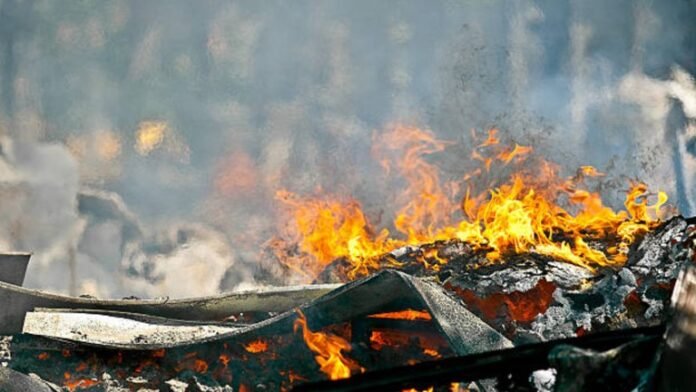On a night meant for celebration, joy, and togetherness, tragedy struck the Christian Tripura community in Bangladesh as a mob reportedly set their homes ablaze on Christmas Eve. The horrific incident has not only shattered the festive spirit but also raised concerns about the safety and rights of minority communities in the country. For the victims, what was supposed to be the happiest day of the year turned into a nightmare of fear and devastation.
The Incident: A Community in Flames
According to local reports, the attack occurred late in the evening in a remote village within the Chittagong Hill Tracts region, home to many indigenous Tripura families. Eyewitnesses stated that a mob armed with sticks, torches, and weapons descended on the village, targeting homes decorated for Christmas festivities. Over 30 houses were reportedly set on fire, leaving scores of families homeless just as they were preparing to celebrate midnight mass.
“We were singing carols when we heard the commotion outside,” recounted one resident. “Within minutes, flames engulfed our homes, and we had no choice but to flee into the nearby forest to save our lives.”
The attackers’ motives remain unclear, but activists believe the incident was fueled by long-standing land disputes and religious intolerance. No group has claimed responsibility for the violence so far, and the local police have launched an investigation. However, residents expressed skepticism about justice being served, citing a history of inaction in similar cases.
Humanitarian Crisis: Displacement and Despair
The attack has left over 100 people displaced, including women, children, and the elderly. Many have taken refuge in makeshift shelters and churches, relying on aid from local NGOs and religious organizations. Basic necessities such as food, water, and warm clothing are in short supply, making the harsh winter even more unbearable for the affected families.
“Our children are hungry, and we have no roof over our heads,” said another victim. “Christmas was supposed to be a time of hope, but now we are left with nothing.”
Human rights organizations have condemned the attack, calling it a gross violation of minority rights. They have urged the Bangladeshi government to take swift action to bring the perpetrators to justice and provide relief to the victims. The United Nations and various international Christian organizations have also expressed their concern and are reportedly coordinating efforts to assist the affected community.
Political and Social Implications
The incident has sparked outrage both domestically and internationally, highlighting the ongoing challenges faced by religious and ethnic minorities in Bangladesh. The Tripura community, an indigenous group with its own distinct language and culture, has long struggled for recognition and equality in a predominantly Bengali Muslim nation. Incidents of violence and discrimination against such communities are not uncommon, often stemming from disputes over land and resources.
Critics argue that the government’s failure to address these underlying issues has emboldened perpetrators. “The lack of accountability in previous cases has created an environment where such attacks can occur with impunity,” said a human rights activist. “The government must take a firm stand to protect its citizens, regardless of their religion or ethnicity.”
Political parties have also weighed in on the incident, with opposition leaders accusing the ruling Awami League of neglecting minority rights. In response, government officials have pledged to investigate the matter thoroughly and ensure the safety of all citizens. However, skepticism remains high, given the slow pace of justice in similar cases in the past.
Calls for Justice and Rebuilding
As the affected community begins to pick up the pieces, the focus has shifted to rebuilding lives and ensuring justice. Religious leaders have called for peace and unity, urging the government to take concrete steps to prevent such incidents in the future. “We must come together as a nation to protect our most vulnerable communities,” said a local bishop during a prayer service held for the victims.
Activists have also called for stronger laws and enforcement mechanisms to protect minority communities and address the root causes of such violence. “This is not just a Christian issue or a Tripura issue; it’s a human rights issue,” emphasized an activist. “Until we address the systemic problems, such tragedies will continue to occur.”
A Christmas to Remember—for the Wrong Reasons
For the Christian Tripura community in Bangladesh, Christmas 2024 will forever be etched in memory as a day of sorrow rather than celebration. As the ashes of their burned homes cool, the victims face an uncertain future, grappling with questions of justice, safety, and survival. While the incident has drawn attention to their plight, only time will tell whether it will lead to meaningful change or fade into the annals of forgotten tragedies.
For now, the community’s resilience and faith remain their only sources of strength, as they hope for a brighter and safer tomorrow.

